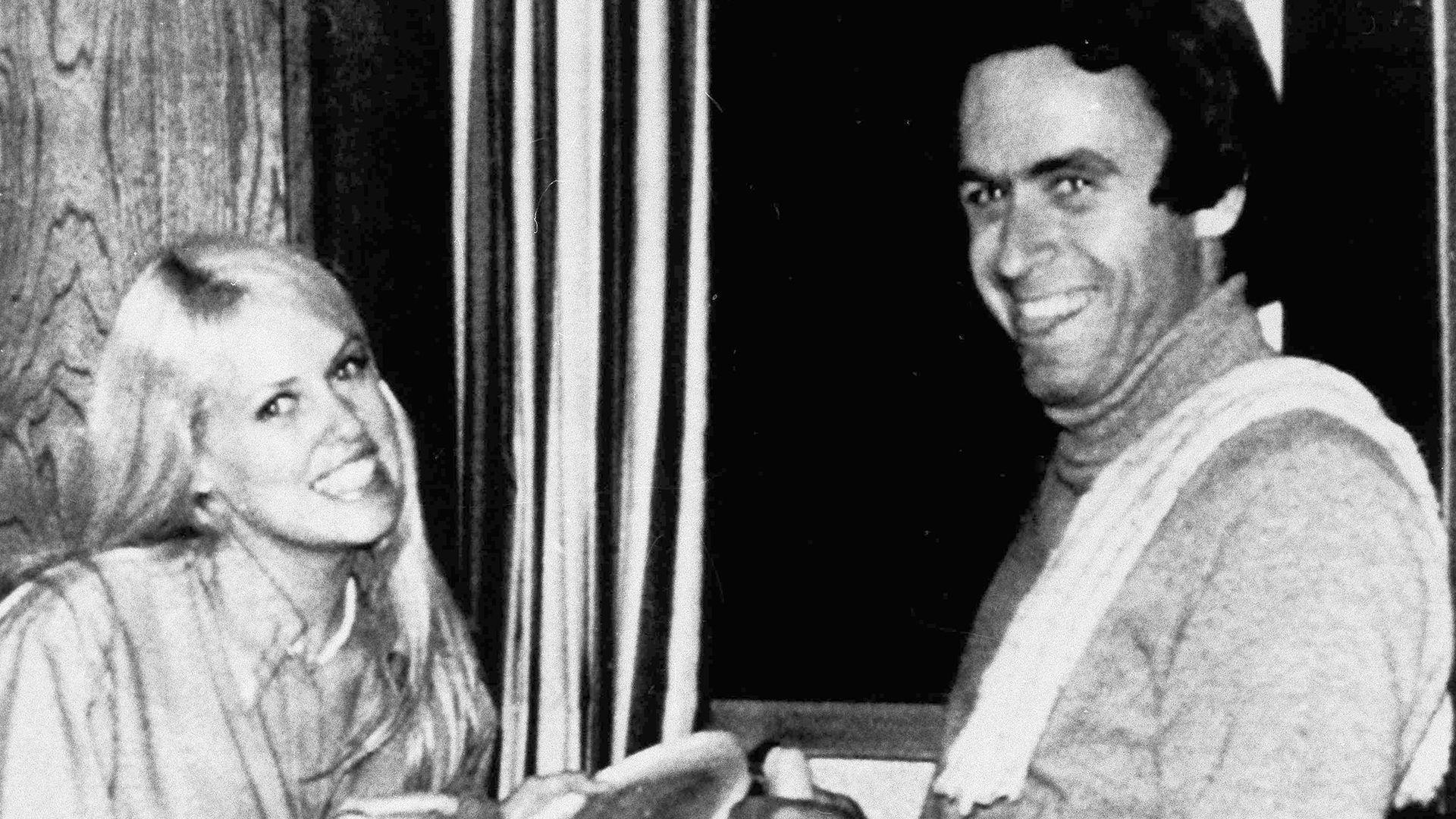Ted Bundy Childhood: The Dark Beginnings Of A Serial Killer
When we talk about infamous serial killers, one name always pops up in the conversation—Ted Bundy. His chilling crimes and manipulative nature have made him a notorious figure in true crime history. But have you ever wondered what shaped Ted Bundy into the monster he became? Let’s take a deep dive into the Ted Bundy childhood to uncover the roots of his dark journey.
Understanding Bundy’s early years can offer insight into the complexities of his psyche. It’s not just about the murders or his charm; it’s about the man behind the mask. The Ted Bundy childhood was filled with secrets, confusion, and a lack of identity that may have contributed to his adult behavior.
By exploring his early life, we can piece together the puzzle of what made him tick. This isn’t just a story of a criminal—it’s a study of human nature, trauma, and the consequences of unresolved issues. Let’s get into it, shall we?
- Victoria Jane Verstappen The Rising Star In Motorsport World
- Fashion Icon Dti The Ultimate Guide To Redefining Style
Table of Contents
- Early Life and Family Background
- Identity Crisis: The Mystery of His Parents
- School Years: Bundy's Academic Journey
- Social Life: Relationships and Connections
- Psychological Impact of Childhood Experiences
- Key Events That Shaped Bundy's Personality
- Biography: A Detailed Overview of Ted Bundy
- How Bundy's Childhood Affected His Adult Life
- Expert Opinions on Bundy's Early Years
- Conclusion: Lessons Learned from Bundy's Childhood
Early Life and Family Background
Ted Bundy was born on November 24, 1946, in Burlington, Vermont. His early life was shrouded in mystery, setting the stage for the enigmatic figure he would become. Raised by his mother, Eleanor Cowell, and her parents, Bundy grew up in a household where his true parentage was kept a secret. This lack of clarity about his origins left a lasting impact on his psyche.
His mother, Eleanor, was only 22 years old when she gave birth to Ted. At the time, out-of-wedlock pregnancies carried a significant social stigma, forcing Eleanor to move to a home for unwed mothers. This secrecy was just the beginning of a pattern of concealment that would define Bundy’s early years.
Family Dynamics: The Role of Bundy's Grandparents
Growing up, Ted believed his grandparents were his biological parents and his mother was his older sister. This confusion about family roles created a distorted sense of identity from a young age. Bundy’s grandparents played a crucial role in raising him, instilling strict religious values and a sense of discipline that contrasted with the chaos of his hidden past.
- Yololary Leak The Inside Story You Need To Know
- Tony Hinchcliffe Wife The Untold Story Behind The Scenes
Despite the rigid structure at home, Bundy’s childhood was far from ordinary. The weight of secrecy and the absence of a father figure left an indelible mark on his emotional development, shaping the man he would eventually become.
Identity Crisis: The Mystery of His Parents
One of the most significant factors in Ted Bundy’s childhood was the mystery surrounding his parents. Bundy’s mother never revealed the identity of his father, leaving him to speculate and imagine various scenarios. This lack of closure contributed to a deep-seated identity crisis that haunted him throughout his life.
Psychologists suggest that unresolved questions about one’s origins can lead to feelings of inadequacy and instability. For Bundy, this manifested in a desperate need for control and a desire to reinvent himself. His early years were marked by a constant search for belonging and validation, which may have fueled his later manipulative behavior.
Psychological Effects of Concealed Origins
The psychological effects of growing up with a concealed identity cannot be overstated. Bundy’s inability to reconcile his true parentage with the image presented to him by his family likely contributed to his fragmented sense of self. This internal conflict may have influenced his ability to form genuine connections and trust others.
Experts believe that Bundy’s manipulative tendencies in adulthood were a direct result of his childhood struggles with identity. By understanding the impact of his early experiences, we can gain insight into the motivations behind his actions.
School Years: Bundy's Academic Journey
In school, Ted Bundy was known for his intelligence and charm. Despite the challenges of his home life, he excelled academically, earning high grades and participating in various extracurricular activities. His teachers described him as a bright and engaged student, although some noted a tendency toward secrecy and a reluctance to share personal details.
Bundy’s academic success was a source of pride for his family, but it also masked deeper issues. Beneath the surface, he struggled with feelings of inadequacy and a need for constant validation. These emotional struggles were often hidden behind a façade of confidence and charm.
Academic Achievements and Challenges
- Bundy graduated from high school with honors, earning a scholarship to attend the University of Washington.
- His interest in psychology and law led him to pursue a degree in these fields, further fueling his fascination with human behavior and manipulation.
- Despite his academic achievements, Bundy faced challenges in maintaining relationships with peers, often feeling like an outsider looking in.
These early academic successes set the stage for Bundy’s later pursuits, but they also highlighted the growing disconnect between his public persona and private struggles.
Social Life: Relationships and Connections
Ted Bundy’s social life was marked by a complex web of relationships and connections. On the surface, he appeared to be the perfect friend—charming, intelligent, and always willing to lend a helping hand. However, beneath this veneer of sociability lay a deeper sense of isolation and detachment.
Bundy’s ability to manipulate and charm others was evident even in his teenage years. He was known for his persuasive nature and ability to win people over, often using these skills to his advantage. Yet, despite his social prowess, he struggled to form meaningful, lasting relationships.
Manipulative Tendencies and Their Origins
The roots of Bundy’s manipulative tendencies can be traced back to his childhood. Growing up in an environment of secrecy and deception, he learned early on how to navigate complex social situations. This skill, while useful in certain contexts, ultimately contributed to his inability to form genuine connections.
Experts suggest that Bundy’s manipulative behavior was a coping mechanism, a way to exert control in a world where he felt powerless. By understanding the origins of these tendencies, we can gain insight into the motivations behind his actions.
Psychological Impact of Childhood Experiences
The psychological impact of Ted Bundy’s childhood experiences cannot be overstated. Growing up in an environment of secrecy and deception left a lasting mark on his emotional development, shaping the man he would become. Bundy’s early years were marked by a lack of clarity about his origins, a distorted sense of identity, and a need for constant validation.
These factors, combined with his intelligence and charm, created a perfect storm of psychological complexity. Bundy’s ability to manipulate and charm others was a direct result of his childhood struggles with identity and belonging. By understanding the psychological impact of his early experiences, we can gain insight into the motivations behind his actions.
Long-Term Effects on Adult Behavior
The long-term effects of Bundy’s childhood experiences are evident in his adult behavior. His need for control, his inability to form genuine connections, and his manipulative tendencies can all be traced back to his early years. These traits, while seemingly unrelated, are interconnected and form the foundation of his complex personality.
Experts believe that Bundy’s childhood experiences played a crucial role in shaping his adult behavior, contributing to the chilling crimes he would later commit. By understanding the psychological impact of his early years, we can gain a deeper understanding of the man behind the mask.
Key Events That Shaped Bundy's Personality
Several key events in Ted Bundy’s childhood played a significant role in shaping his personality. From the mystery surrounding his parents to the strict religious environment in which he was raised, these experiences left a lasting impact on his emotional development.
One of the most significant events was the revelation of his true parentage, which shattered the illusion of his family life. This discovery, coupled with the strict religious values instilled by his grandparents, created a sense of confusion and conflict that would define his later years.
Defining Moments in Bundy's Early Life
- The revelation of his true parentage, which shattered the illusion of his family life.
- The strict religious values instilled by his grandparents, which created a sense of conflict and confusion.
- His academic achievements, which masked deeper emotional struggles and a need for validation.
These defining moments in Bundy’s early life contributed to the complex personality that would later emerge, setting the stage for his chilling crimes.
Biography: A Detailed Overview of Ted Bundy
To fully understand Ted Bundy, it’s important to examine his life in its entirety. Below is a detailed overview of his biography, including key details about his childhood and adult life.
| Full Name | Ted Bundy |
|---|---|
| Date of Birth | November 24, 1946 |
| Place of Birth | Burlington, Vermont |
| Parents | Eleanor Cowell (mother); father unknown |
| Education | University of Washington, Seattle |
| Profession | Serial killer, law student |
This biography provides a glimpse into the life of Ted Bundy, highlighting key details about his childhood and adult life. By examining his early years, we can gain insight into the man behind the mask.
How Bundy's Childhood Affected His Adult Life
Ted Bundy’s childhood experiences had a profound impact on his adult life, shaping the man he would become. From the mystery surrounding his parents to the strict religious environment in which he was raised, these early experiences left a lasting mark on his emotional development.
Bundy’s need for control, his inability to form genuine connections, and his manipulative tendencies can all be traced back to his childhood struggles with identity and belonging. These traits, while seemingly unrelated, are interconnected and form the foundation of his complex personality.
Connections to His Crimes
The connections between Bundy’s childhood experiences and his later crimes are evident in his behavior. His need for control, his inability to form genuine connections, and his manipulative tendencies all played a role in the chilling crimes he committed. By understanding the impact of his early years, we can gain a deeper understanding of the man behind the mask.
Expert Opinions on Bundy's Early Years
Experts in psychology and criminology have long studied the impact of Ted Bundy’s childhood experiences on his adult behavior. Their insights provide valuable context for understanding the motivations behind his actions.
Dr. Robert Hare, a renowned expert on psychopathy, suggests that Bundy’s childhood experiences contributed to his development as a psychopath. His lack of empathy, his need for control, and his manipulative tendencies are all hallmarks of psychopathic behavior, rooted in his early years.
Psychological Theories and Their Relevance
Various psychological theories have been proposed to explain Bundy’s behavior, each offering a unique perspective on his motivations. From attachment theory to cognitive-behavioral theory, these frameworks provide valuable insights into the complexities of his psyche.
By examining these theories, we can gain a deeper understanding of the man behind the mask, shedding light on the motivations behind his chilling crimes.
Conclusion: Lessons Learned from Bundy's Childhood
In conclusion, Ted Bundy’s childhood was a complex tapestry of secrets, confusion, and a lack of identity. These early experiences left a lasting impact on his emotional development, shaping the man he would become. By understanding the impact of his early years, we can gain insight into the motivations behind his actions and the chilling crimes he committed.
We encourage readers to share their thoughts and insights in the comments below. What do you think about the connection between Bundy’s childhood experiences and his adult



Detail Author:
- Name : Reanna Corwin
- Username : kuphal.llewellyn
- Email : kayla11@hotmail.com
- Birthdate : 1993-09-19
- Address : 89563 Bernardo Vista New Betty, NE 11799-1807
- Phone : 423.329.1959
- Company : Larkin-Kshlerin
- Job : Computer Specialist
- Bio : Delectus et commodi accusantium nisi ad amet architecto aut. Eos similique ipsam assumenda nulla nulla enim consequatur. Aut qui natus doloribus maxime facere ipsam.
Socials
instagram:
- url : https://instagram.com/rau1987
- username : rau1987
- bio : Cumque voluptatem id reiciendis magnam. Quia autem ratione et velit similique nemo dolor modi.
- followers : 5737
- following : 562
tiktok:
- url : https://tiktok.com/@fletcher.rau
- username : fletcher.rau
- bio : Deserunt ut aliquid eum dicta. Aut vero ut autem dolorum sit.
- followers : 2682
- following : 2130
linkedin:
- url : https://linkedin.com/in/fletcher9647
- username : fletcher9647
- bio : Asperiores consectetur fugiat est illo ut sit.
- followers : 4122
- following : 1711
facebook:
- url : https://facebook.com/fletcher8119
- username : fletcher8119
- bio : Fuga aut numquam qui explicabo aut ut. Natus sunt dolores aut quia et.
- followers : 2174
- following : 2976
twitter:
- url : https://twitter.com/fletcher.rau
- username : fletcher.rau
- bio : Et cumque alias non odit. Sed itaque nesciunt consequuntur iure et facilis quas veritatis. Labore qui omnis minima.
- followers : 6318
- following : 2988